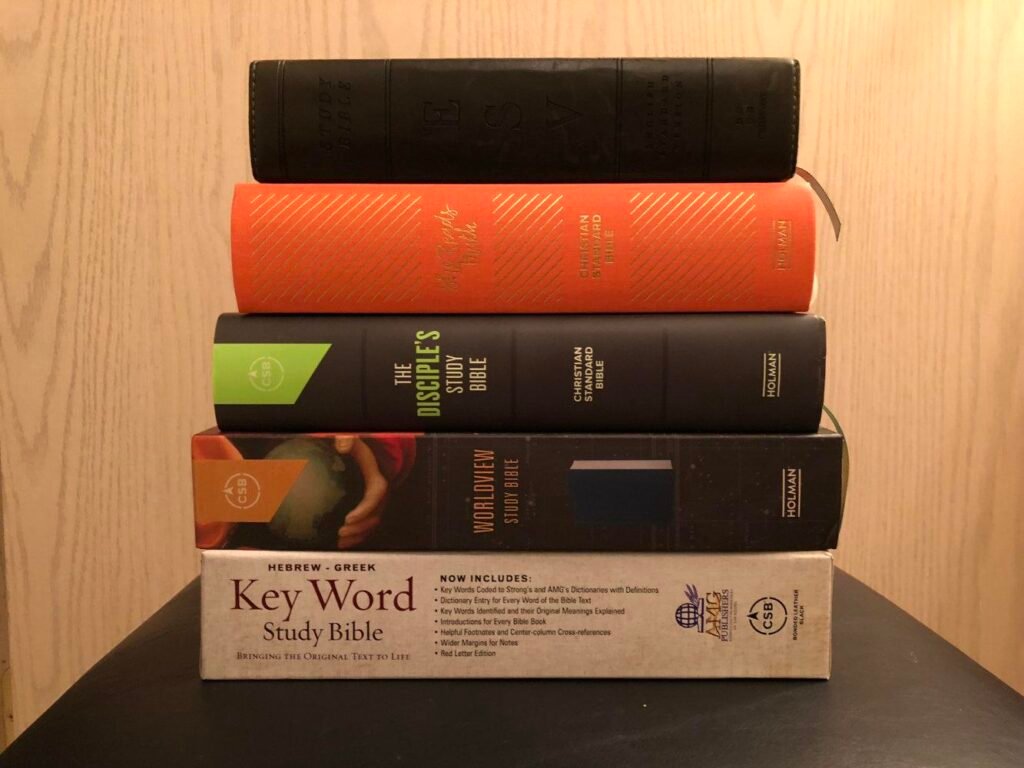Choosing the right Bible study materials can significantly enhance your spiritual growth and understanding. With numerous resources available, it’s essential to select those that best suit your needs and goals. Here’s a guide on how to choose the best Bible study materials.
Evaluating Your Bible Study Goals
1. Define Your Objectives
Before selecting materials, it’s crucial to define your objectives. Are you looking for in-depth theological study, personal growth, or practical application? Understanding your goals will help you choose resources that align with your needs.
2. Consider Your Current Knowledge
Assess your current knowledge level of the Bible. If you’re a beginner, opt for materials that offer basic explanations and overviews. For more advanced study, seek resources with deeper theological insights and scholarly analysis.

Types of Bible Study Materials
1. Study Bibles
Features and Benefits
Study Bibles are excellent for both beginners and advanced readers. They typically include commentaries, maps, and cross-references that provide additional context and explanations. Look for a study Bible that aligns with your preferred translation and study style.
Choosing the Right Edition
When selecting a study Bible, consider the editorial notes and study guides included. Different editions focus on various aspects, such as historical background, theological insights, or practical applications. Choose one that complements your study goals.
2. Commentaries
Depth and Scope
Commentaries offer detailed explanations and interpretations of biblical texts. They can range from introductory overviews to in-depth analyses. Choose commentaries based on their author’s credibility and theological perspective to ensure they meet your study needs.
Series vs. Individual Volumes
Decide whether you prefer a commentary series that covers the entire Bible or individual volumes focusing on specific books or themes. Series can provide a comprehensive approach, while individual volumes allow for focused study.
3. Devotional Books
Daily Devotions
Devotional books provide daily reflections and applications of scripture. They are ideal for personal growth and daily inspiration. Look for books that resonate with your spiritual needs and offer practical advice for applying biblical teachings.
Thematic Devotions
For targeted study, consider thematic devotionals that focus on specific topics such as faith, prayer, or gratitude. These can complement other Bible study materials and provide focused insights.
4. Bible Study Guides
Structured Study Plans
Bible study guides offer structured study plans and questions to facilitate group or individual study. They often include discussion questions, application points, and reflection prompts. Choose guides that suit your study group size and format.
Interactive Features
Look for guides with interactive features such as online resources, apps, or study aids. These can enhance your study experience and provide additional support.
Additional Considerations
1. Reviews and Recommendations
Check reviews and recommendations from other readers or study groups. Personal experiences and opinions can offer valuable insights into the quality and relevance of the materials.
2. Publisher and Author
Research the publisher and author of the materials. Reputable publishers and experienced authors often produce high-quality, reliable resources.
Conclusion
Choosing the best Bible study materials involves defining your study goals, understanding your current knowledge, and evaluating the types of resources available. Study Bibles, commentaries, devotional books, and Bible study guides each offer unique benefits and can cater to various needs. By considering reviews, publishers, and personal preferences, you can select materials that will enhance your spiritual journey and deepen your understanding of the Bible.









